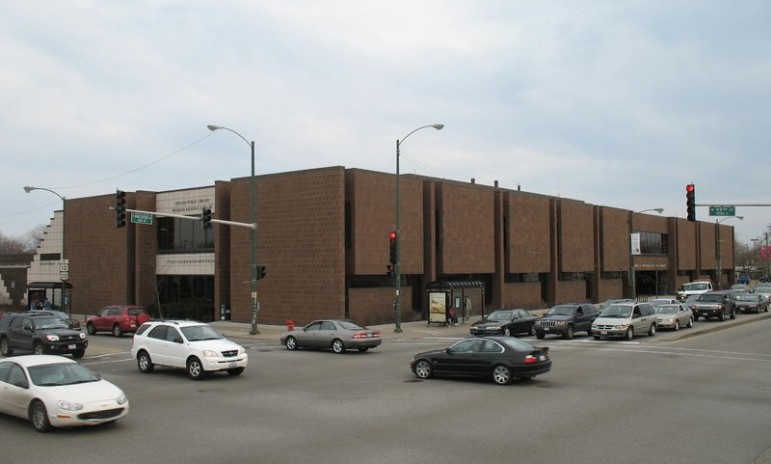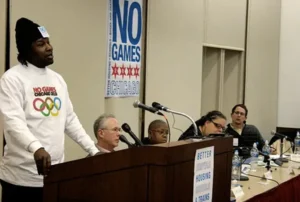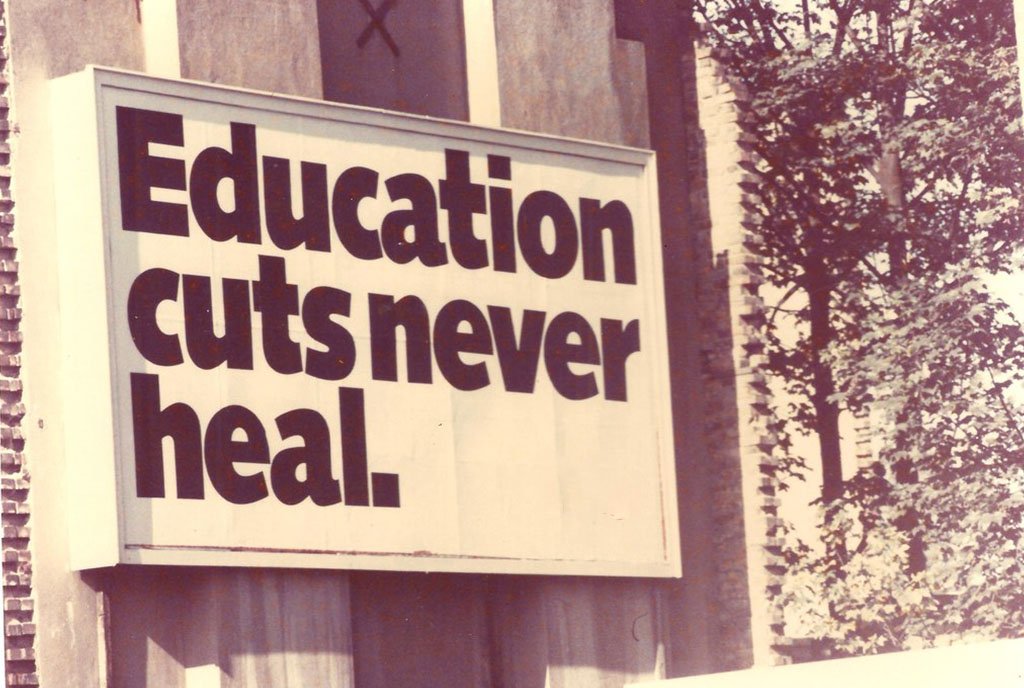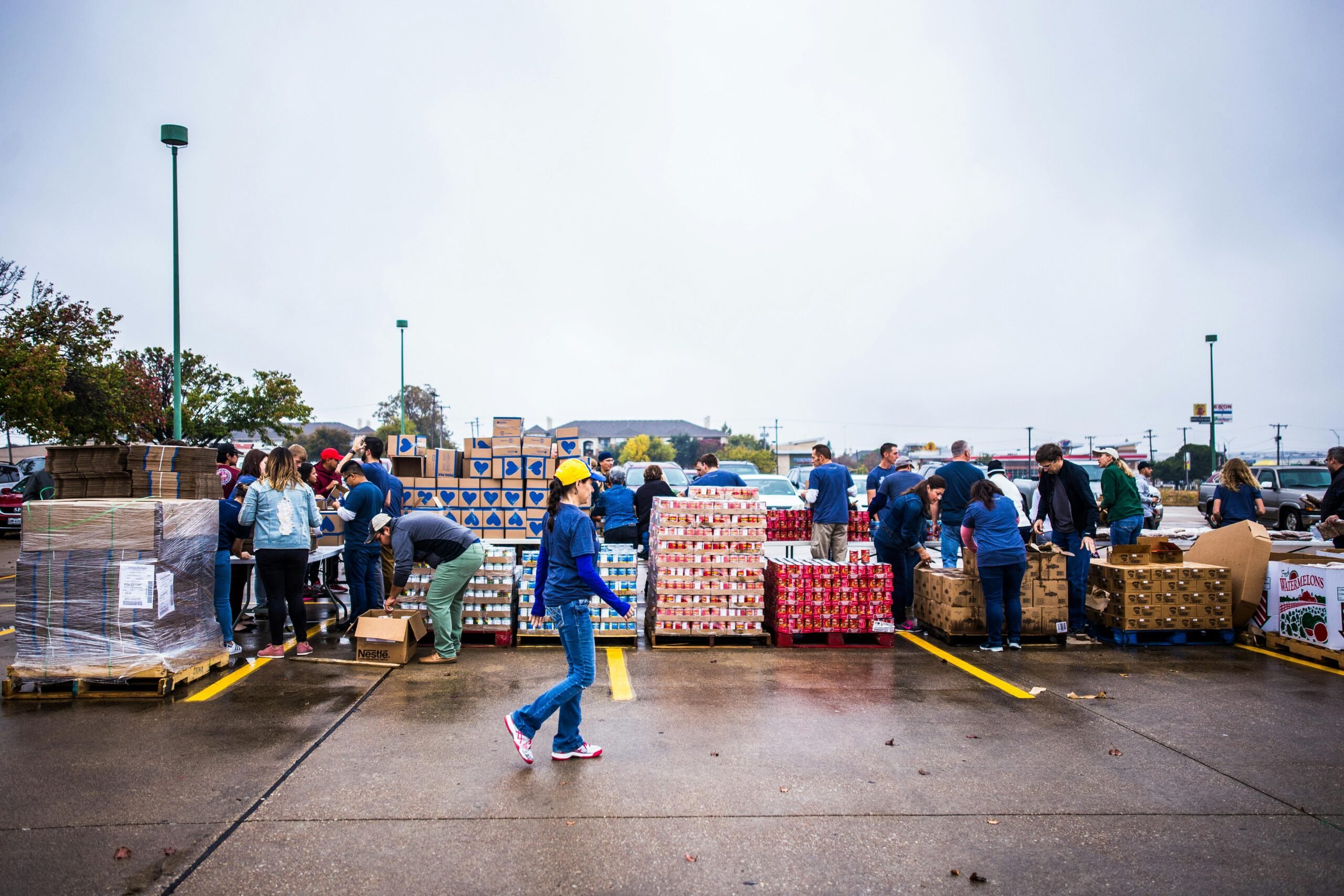
The Midwest’s largest collection of black literature is in jeopardy and Chicago city officials do not exactly appear to be on the case. The Carter G. Woodson Library in the Southside Chicago neighborhood of Washington Heights, which is primarily African American, is in danger of being destroyed as the building housing it crumbles. The city does not seem to have a timely solution to save it.
Carter G. Woodson Regional Library opened December 19, 1975, in a two-story building housing the Vivian G. Harsh Research Collection of Afro-American History and Literature, the largest collection of its kind in the Midwest. The library was named for Dr. Carter G. Woodson, known as the father of African American historiography. A prolific writer and founder of the Association for the Study of Negro History and Life, Woodson made many contributions to the study of African American history and culture. In 1998, an 11,000-square-foot wing was added to expand the Vivian G. Harsh Research Collection, named after Chicago’s first black librarian. The expanded collection opened January 25, 1999.
But not much work has been done to repair and keep up the building since then. WGN reported that the building is literally falling apart, putting into danger its priceless collection, which features slave and genealogy records, and original manuscripts from notable black authors. There is scaffolding around the building that has existed for so long that few can remember when it was placed there. (According to the city, the scaffolding was installed during the Daley administration in 2002, over 14 years ago—first around the entrance, and then expanded to take up the entire front of the structure.) The city says shoddy construction and poor design of Woodson library, built 40 years ago, led to this, and now the scaffolding is now in place to protect pedestrians, surrounding this very busy regional library, which is reported to have 25,000 people coming through the turnstiles to visit each month.
Other building repairs are also needed. Alderman Howard Brookins, the alderman in the 21st ward in which the library resides, told the media outlet DNAinfo that there are plumbing problems and heating and air conditioning issues, and the parking lot needs to be resurfaced because it floods when it rains.
Sign up for our free newsletters
Subscribe to NPQ's newsletters to have our top stories delivered directly to your inbox.
By signing up, you agree to our privacy policy and terms of use, and to receive messages from NPQ and our partners.
In late January, over 100 community members attended a meeting to address what the city plans to do repair the library and discuss community suggestions for repairs and upgrades. But the meeting turned contentious when not one city official showed up. Residents expressed their frustration at the city for not attending, with Alderman Brookins saying it was “disappointing and disheartening” that no one from the Chicago Public Library showed up. Chicago Public Library spokesman Patrick Molloy said that the library fully supports the project, but there must have been a misunderstanding and library officials didn’t commit to attending the meeting.
So what is the long-term plan to save the building housing this historic collection of black literature? Melvin Thompson is the executive director of the Endeleo Institute, a nonprofit focused on building up Chicago’s Washington Heights community. One of the group’s primary goals is getting Woodson Library the attention it needs. Since 2013, Endeleo has put pressure on the city to make repairs while watching new state-of-the-art libraries go up in more affluent neighborhoods, such as Beverly and Chinatown.
City officials told Chicago media outlet WGN that a facelift for Woodson carries an estimated budget somewhere between $5-10 million, but city officials couldn’t seem to come up with a reason why the library was neglected for so long. The Endeleo Institute and community residents would like to ensure that residents are hired to work with the new library project and are demanding that a “community benefits agreement” be put in place to make sure a reasonable amount of minority and local hiring is satisfied once this city project gets off the ground. Such agreements, according to the Chicago Lawyers Committee for Civil Rights Under Law, are “contracts that detail the benefits that a developer will give to secure the cooperation, or at least forbearance of, community organizations regarding the developer’s application for permission to develop a particular project.” However, the city tells WGN that they are not interested in pursuing a community benefits agreement, but they are willing to increase minority and local hiring for this project, above the standard city mandates.
Nearly $10 million was granted to the Chicago Public Library by the state for the Woodson project, but only about $6 million has actually been paid out, with the rest now tied up in the state budget stalemate. It’s being reported that the city expects to put this project up for bid by the end of March. Hopefully that will be in enough time to keep this irreplaceable collection of black literature safe.—Alexis Buchanan












